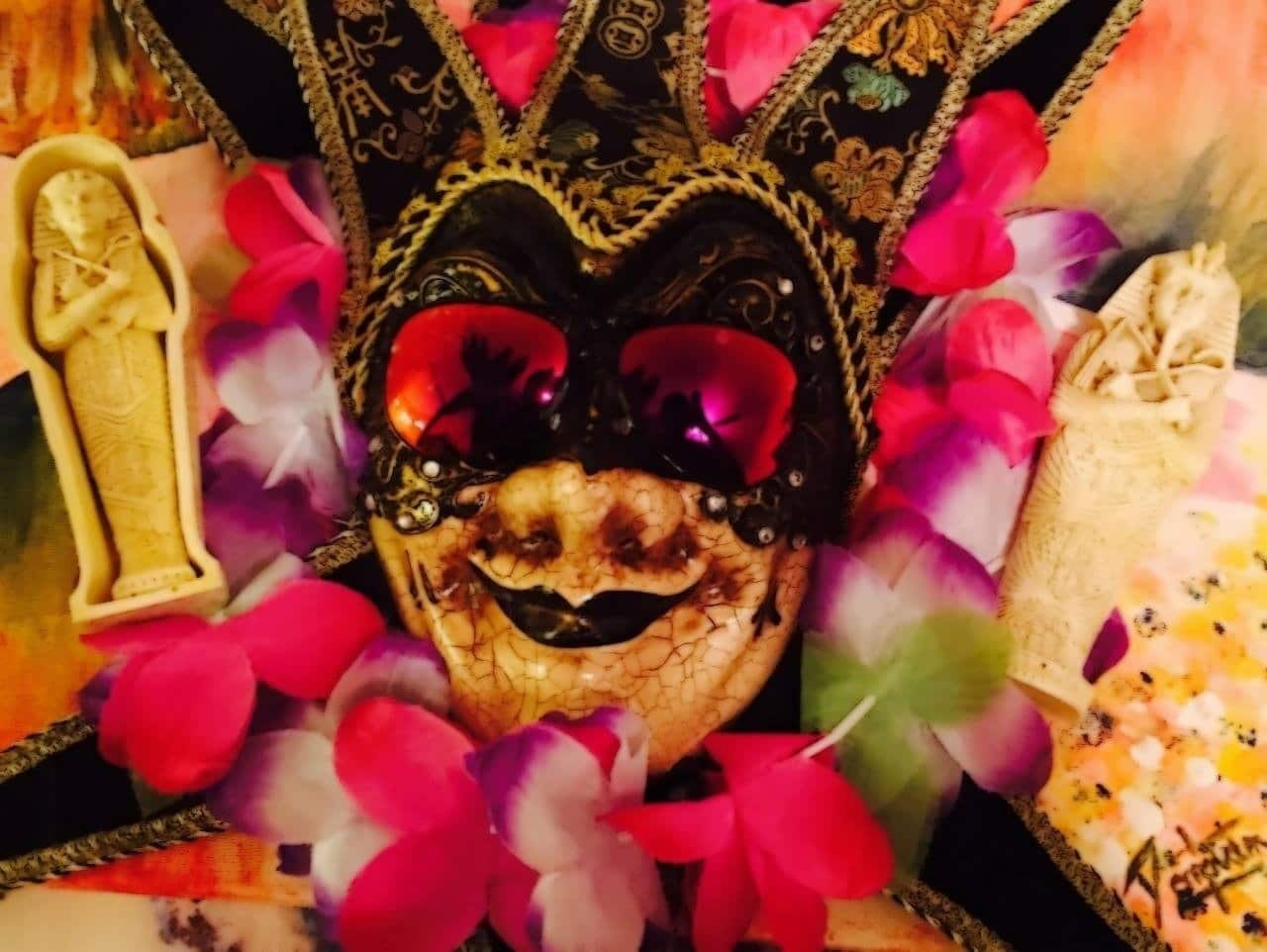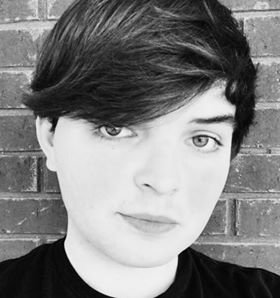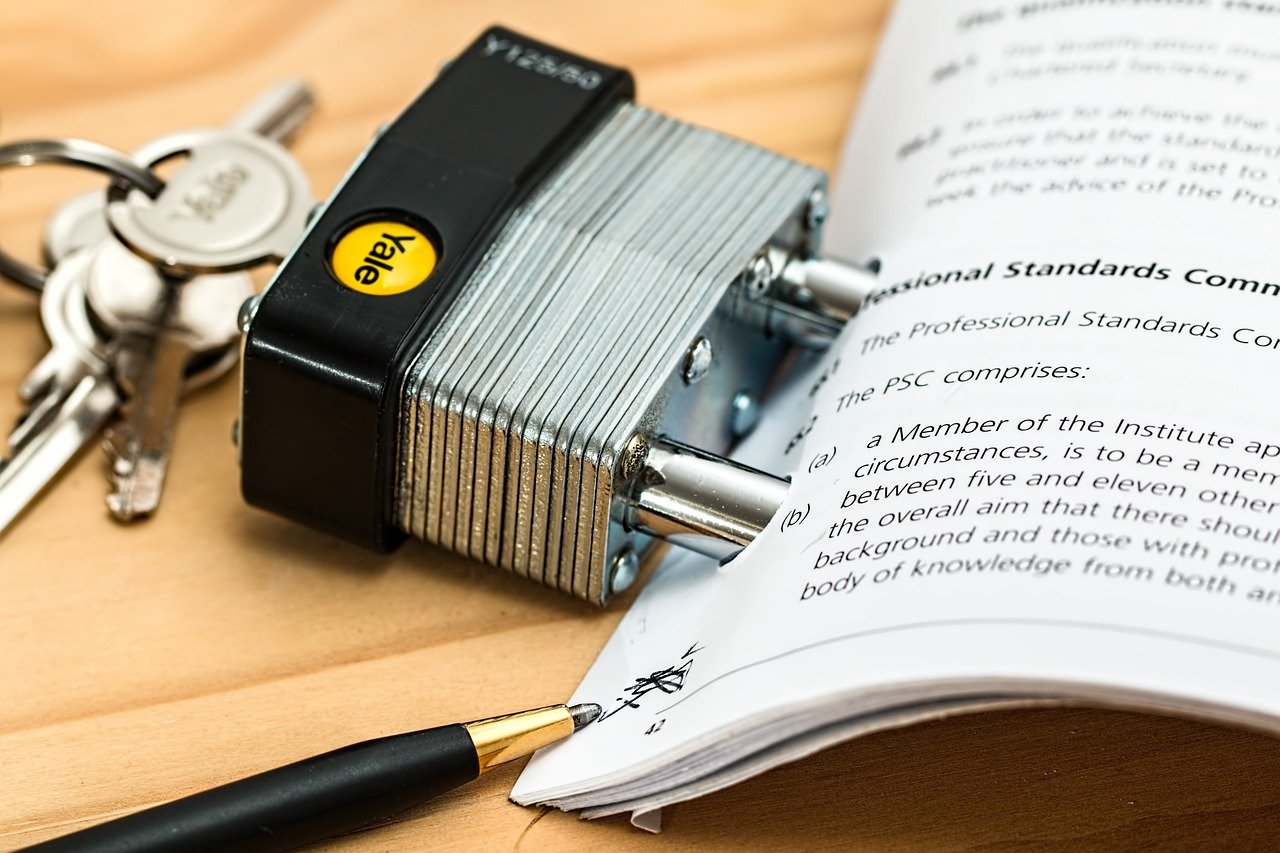“Queer” activists fictionalize and romanticize the life of Sylvia Rivera, downplaying Rivera’s misogyny toward women, particularly lesbians.
“Anger is loaded with information and energy,” Audre Lorde reflected in 1981. I wrote this essay during June, a time which is known as “Pride Month”, but which, for me, has become a moment of yearly mourning. I put this piece away, shelving it among so many others, because it brought hurt to my heart writing it over what I have seen in the naked betrayal of lesbians and gay men by people—“leftists”—who claim to care about us. I felt angry then, and I feel even angrier now. In a really profound sense, I feel radically betrayed by so many people whom I will never trust ever again as long as they live. And I hope they all know precisely who they are. They deserve all of my brutal disappointment and so much more for having been sellouts against me and so many others.
Against the queer horrors of homophobia, I feel pride in who I am, as a gay man who has lived my entire life, since a boy, being quite gender-nonconforming, not simply in dress, but in deed—non-masculine. Yet, I feel so much shame for the crowds of people, even my own people, maddeningly sacrificing their integrity on the shrine of a pseudoreligious ideology of alienation between the body and the mind. For their betrayal alone, they should be served infinite shame and then some. They should seek no solidarity from me. They especially should live in shame for their pride in selling out their own kind.
Gender-nonconforming lesbian girls and gay boys are being thrown into the fire by the traitors to our people making their profits from our pain. An entire generation of lesbian and gay youth will be recovering in the ruins. And here I am, angry, with you all: informed and energized. As a homosexual person, I yearn for lesbian and gay liberation from the “queer” compulsory heterosexuality that so oddly afflicts our own social movement. I hope that you do, too.
“Oppressors always expect the oppressed to extend to them the understanding so lacking in themselves.”
– Audre Lorde, “Sexism: An American Disease in Blackface” (1979), from Sister Outsider: Essays and Speeches (1984)
“One might have hoped that since gay men themselves can be, in a way, victims of woman-hating, they might have come to an unusual identification with women and hence to political alliance with them. This is a political possibility which is in some degree actualized by some gay men, but for most, such identification is really impossible. They know, even if not articulately, that their classification with women is based on a profound misunderstanding. Like most other men who for one reason or another get a taste of what it’s like to be a woman in a woman-hating culture, they are inclined to protest, not the injustice of anyone ever being treated so shabbily, but the injustice of their being treated so when they are not women. The straight culture’s identification of gay men with women usually only serves to intensify gay men’s investment in their difference and distinction from the female other. What results is not alliance with women but strategies designed to demonstrate publicly gay men’s identification with men, as over and against women. Such strategies must involve one form or another of public acting out of male-dominance and female-subordination.”
– Marilyn Frye, “Lesbian Feminism and the Gay Rights Movement: Another View of Male Supremacy, Another Separatism” (1981), from The Politics of Reality: Essays in Feminist Theory (1983)
Alongside Marsha P. Johnson, Sylvia Rivera has been described as a “trans woman of color” who started the Stonewall rebellion. When interviewed, presumably toward the end of Rivera’s life, we see a discussion, in Rivera’s own words, of how AIDS crisis funding should not have gone to lesbians. Interviewed, Rivera said:
“Why didn’t the gay men’s health crisis [center] get the money? It went to the gay [and] lesbian service center, not to where it’s supposed to go. As far as I’m concerned, that money had no business being directed to the gay [and lesbian] service center. Right, the ‘gay community center’ or whatever they call it, ‘lesbian/gay,’ you know. I still call it—to me there’s only one word—it’s ‘GAY.’ Lesbians and gays, as far as in my book, you know, through all the years that I’ve been in the movement, I’ve always had the respect for the lesbians and whatnot, but, Randy, you and I both know that when the Stonewall rebellion started and when the Stonewall riots started, there were no gay women [lesbians] that were arrested. And why lesbians have to be put in front of the word ‘gay,’ when we’re all gay, then we might as well just start a whole new segment in our history and have everybody defined—‘drag queens’…Everything is ‘lesbian and gay.’ And, as far as I’m concerned, I don’t believe that it should be that way.”
From Rivera’s own mouth, this kind of “exclusionary” rhetoric alone would cause somebody to be cancelled in 2020, perhaps causing his or her statues to be torn down, to have his or her honors stripped away. Indeed, maybe public statements of condemnation would be issued, coming from all the usual suspects: platitudinous politicos and self-righteous superstars. If J.K. Rowling literally “murders” “transgender people” by being “trans-exclusionary”—that is, “male-exclusionary”—with her feminism, then what do we make of Rivera’s queer remarks?
To my knowledge, nobody, with the exception of lesbian feminists, honestly has cared about Rivera, among other gay men like him, having been an obvious, raging misogynist. Given Rivera’s unapologetic attitude toward speaking, he absolutely would not have apologized on demand at all for explicitly saying that lesbian lives do not matter like gay men’s lives. He saw gay men as superior to lesbians and saw himself among those whom he saw as superior. His misogynistic opposition, an attitude of silencing and suppressing women, regarding lesbian radical feminist critiques of him and other drag queens mocking women, has been known. And there lies the hypocrisy of “the left,” its sexual double standard: It has policed women’s speech in ways that it never has done to men’s speech. It has been very able to tell the men from the women. The misogyny from men as a sex class could not be any more clear, as it has “come out of the closet,” quite literally, just to mock women’s mere existence as a sex class. Men and women alike would put a male supremacist, a “female impersonator,” on a pedestal above actual women.
In 2002, Rivera died at the age of 50 and, when making these remarks, likely in the 1990s, appears between the ages of 40 and 50—surely not in his youth, closer to his death. And so Rivera saw himself as a gay man, here explicitly identifying his social and political interests with members of his own sex exclusively sexually oriented toward other members of his same sex. Throwing lesbians under the bus, as Rivera does, in his own words, does not necessarily speak indeed to any even remote sense of identification with women as such. Rivera was neither a “straight woman” nor did he lay any claim whatsoever to being the opposite sex. Like many members of his sex, who are male, like him, he disliked women as a sex, especially lesbians. Rivera explicitly considered what he did “cross-dressing,” “drag,” and “transvestism.”
Right there in Rivera’s remarks, he was visibly misogynistic, with a specific loathing for lesbians, targeting them as being separate from both himself and other gay men—woman as “Other,” lesbian as doubly so. Few care to consider, however, that lesbians gave much to their gay brothers during the AIDs crisis, only for gay misogynists, like Rivera himself, to turn around and abandon their sisters and treat them as if less than garbage. Against popular beliefs rooted in the misogynistic erasure of women from history, lesbians have been essential to the development of the modern lesbian and gay liberation movement. For example, the Daughters of Bilitis, founded by Del Martin and Phyllis Lyon in 1955, was the first lesbian civil and political rights organization in the United States. This group, in fact, preceded the Stonewall rebellion by almost two decades, being among the first collectives of homosexual people organizing as people exclusively sexually oriented toward the same sex. Likewise, the Mattachine Society for gay men was founded in 1950. And yet where are the statues being built honoring these lesbian and gay forerunners? Where is their recognition by the very same people demanding a monument to Johnson and Rivera? I see no honor whatsoever being given to the early lesbians and gay men, especially the lesbians, who have fought for our rights.
Returning to Rivera, at the end of his life, as we see above, he firmly rejected the idea of even having an “L,” much less a “T” and a “Q,” in any acronym whatsoever. In fact, as it would seem, he did not want an acronym at all. Rivera himself said: “I still call it—to me there’s only one word—it’s ‘GAY.’” He thought that the “G” (i.e., gay men) held ultimate supremacy over all other people, especially females in general and lesbians in particular. Rivera believed in male supremacy over and against women. Like other males in the male-supremacist tradition, Rivera also categorically denied the existence of lesbians, indeed all females, in lesbian and gay history. Rivera himself practiced historical negationism driven by his own misogyny.
“Gay power,” Rivera once proclaimed, in 1973, apparently not including lesbians in his proclamation, with the added context of his comments made toward the end of his life. Even in his short speech, “Ya’ll Better Quiet Down,” which is, for some odd reason, treated like sacred testament, Rivera exclusively focuses on members of his own sex. In these remarks, Rivera talks about having gone to jail and being raped by a man and how putting heterosexual men in “the homosexual shelter” has put him at risk. One wonders, then, what precisely activists think in 2020 about putting violent male sex offenders in female prisons and shelters. Men raping men in prison, it seems, becomes seen as significantly horrible, a human rights violation worthy of protest, while men raping women in prison appears trivialized as “transphobia.” After all, the prominent human rights groups in our time who have ignored women’s well-founded concerns have decided that women’s rights are not human rights.
Queerly enough, back in 1973, Rivera seemed to criticize the women’s liberation movement of the early 1970’s for not funding hormones and surgeries for men who wanted to live as “women.” But the feminist movement itself did not even fund cosmetic surgery for actual females, much less furnish breast implants for raging misogynists of the male sex. Nor did the movement just randomly hand out money to women, even if many men, like Rivera, seem to believe that women possess special privileges in life over men just for being female.
It is of further interest, as mentioned above, that Rivera prioritized people observed male at birth over people observed female at birth, that is, any of the latter group with gender dysphoria appear excluded from his concerns. When Rivera said “sisters,” he explicitly meant “sisters” like himself, members of his own sex, not “sisters” of the opposite sex. Color me unsurprised: A man impersonating a “woman” complains about exclusion, while excluding actual women as a sex class from his concerns. Rivera thus excluded all people observed female at birth. The argument has been that “trans men” (observed female at birth) possess “male privilege,” so “trans women” (observed male at birth) must be prioritized. And so it has been so in “transgender rights activism” for decades: One sex appears seen as superior over “the second sex.” At a glance, people observed female at birth, that is, women and girls, seem to be given a poor deal no matter what path they decide for themselves.
None of these problems would bother most “progressives,” however, until they, mostly strategically blind to boldfaced misogyny, consider that Rivera himself would reject the idea of “LGBTQ+” itself. That point, against the perpetually expanding acronym, likely would be what would prick a nerve, not necessarily the subjection of women. In Rivera’s demands on women, he exemplifies what Audre Lorde has observed in how “[o]ppressors always expect the oppressed to extend to them the understanding so lacking in themselves.” He expected women to understand him, without him seeking to understand women and supposing, rather, that he knew all there was to know. As Marilyn Frye has observed, while we would expect a gay man like Rivera to ally with women politically against misogyny, what we find instead is male supremacy in drag.
On the basis of “gender identity,” males collectively command females to protect and respect the “womanhood” of other members of the male sex who do not even regard actual women as human beings. Deployed in this way, to further dominate the female sex, “gender identity” has become an effective instrument for sustaining male-supremacist ideology. If “the left” wants to destroy white supremacy, which I presume that it does, then it should cease supporting male supremacy in the name of fighting white supremacy. Only in a sexist society that so woefully hates women on the basis of sex does it make any sense whatsoever to sacrifice all women as a sex class for a subclass of the male sex class. As much as “intersectional feminists” have criticized white suffragists of the past for, over a century ago, collaborating with white supremacy against their Black suffragist sisters, “the left” still collaborates in male supremacy against all women as a sex. What is worse is that, to protect and respect the “womanhood” of people observed male at birth, crowds of women on “the left” have collaborated in the subjection of women against their own sex. Wretched in this way, a watered-down “intersectional feminism” that refuses to recognize sex as the basis of sexist oppression has become to women’s liberation what “All Lives Matter” has been to Black liberation.
Active from 1970 to 1973, Street Transvestite Action Revolutionaries (STAR), founded by both Johnson and Rivera, provided a place for homeless, gender-nonconforming gay youth, particularly males from racially marginalized communities. I do not doubt that Johnson and Rivera provided valuable community for many males lacking precisely that in their time of need. However, whatever Rivera did do for gay men, in fact, particularly with regard to gender-nonconforming homosexual male youth made homeless by homophobia, I find it shadowed by his male supremacy, his misogyny, his hatred toward women and lesbians, and his narcissism. Because of how so many “queer” activists have strongly romanticized Rivera, hiding whatever might make him appear all too human, it has robbed him of his fallible humanity. In trying to reclaim this figure, reimagining him against demonization has led, in a fit of failure, to his dehumanization. Without his consent, Rivera has been recrafted, clearly to fit as a figurehead for modern “transgender” ideology, when none of that is who he was at all.
May Rivera rest in peace as he was: A gay misogynist, like so many of his brothers, who denied the role his own sisters played in lesbian and gay liberation, the liberation of our people. He deserves nothing more and nothing less in death than to be remembered as the man whom he was in life. “[T]o me there’s only one word—it’s ‘GAY,’” Rivera said. And so, as a gender-nonconforming gay man, I further demand, with no reservations whatsoever, that “queer” and “nonbinary” people stop digging up Rivera’s corpse and throwing his bones at me. I am far beyond sick and tired of even having his specter summoned against me—an actual gay liberationist living in our time. To be concerned about the medicalization of gender-nonconforming people in our community and have my concerns disregarded is disrespect.
If that disrespectful behavior was not worse enough, what is even worse is that, in fact, most of the people engaging in this extreme disrespect for our people are heterosexual or bisexual people calling themselves “homosexual.” Or, they have inserted themselves into our community, wrongfully, demanding that we center their grievances as if our own, under purely false pretenses. Predatory in their parasitism, they have leeched the life from our community. It is a form of coercion called forced teaming, rooted in gaslighting people into silence and submission. In the name of so-called “solidarity,” they have forced themselves onto us against our will, dominating our spaces as if rightfully their own. At this point, I feel no solidarity with them whatsoever; I want them to get out, go away, and leave us alone forever.
Lesbian and gay liberation certainly does not belong to the likes of them, those who have betrayed us, who have sold us out for their desires; it never has and never will be theirs. It is ours to lead as the birthright of lesbians and gay men, for the collective liberation of our people from misogynistic and homophobic tyranny, be it from “the right” or “the left.” Nobody should be stealing our movement from us, possessing what is rightfully ours, not theirs. We must remind them of this movement in this moment.
Note
[1] When Eric Marcus interviewed Marsha P. Johnson during the 1970s, Johnson discussed how neither Johnson nor Rivera, in fact, were at Stonewall when the rebellion started:
“The way I winded up being at Stonewall that night, I was having a party uptown. And we were all out there and Miss Sylvia Rivera and them were over in the park having a cocktail. I was uptown and I didn’t get downtown until about two o’clock, because when I got downtown the place was already on fire. And it was a raid already. The riots had already started. And they said the police went in there and set the place on fire. They said the police set it on fire because they originally wanted the Stonewall to close, so they had several raids. […] Well, at first it was just a gay men’s bar. And they didn’t allow no women in. And then they started allowing women in. And then they let the drag queens in. I was one of the first drag queens to go to that place. ‘Cause when we first heard about this…and then they had these drag queens workin’ there. They didn’t never arrested anybody at the Stonewall. All they did was line us up and tell us to get out. […] We just were saying, no more police brutality and, oh, we had enough of police harassment in the Village and other places. Oh, there was a lot of little chants we used to do in those days.”
What Johnson’s words reveal to us seems to be how gender-nonconformity has been policed insofar as it has been seen in implicit association with homosexuality. It has not been about “gender identity” as much as it has been about non-masculine men (“feminine males”) and non-feminine women (“masculine females”) being seen as homosexual for their gender nonconformity.
Before Johnson’s disappearance and death on July 6, 1992, in his own words, he talks, with pride, about being a gay man and not a woman:
“I don’t know how this man could believe I was a real woman, honey. I was just a transvestite. Maybe it’s because of my voice. I don’t know. […] Once in a while, I would run into this lunatic who would actually have it in his mind that I was a woman, and, I mean, I’d tell him I was a boy. […] Another day, another illusion.”
[Marsha P. Johnson, Interviewed on June 26, 1992, Recorded Audio Heard in ‘Pay It No Mind: The Life and Times of Marsha P. Johnson’ (2012)]
If Johnson was murdered by another man, which I think that he was, then he was murdered for being a proud, Black gay man, unapologetic for who he was as a gender-nonconforming homosexual male, not for him being a “straight trans woman of color.” To rewrite this gay man’s life is ridiculously homophobic and honestly racist, too, in robbing him of his voice and murdering him a second time. I so mourn the loss of respect for the dead, for that is itself a tragedy among so many tragedies.
Of significance to all these points, there is a monument being built in New York under the crass, politically motivated fictionalization that Johnson and Rivera both were (1) even at the Stonewall rebellion at all and (2) “trans women of color.” It is all false.
Almost no talk, as expected, has been made about Stormé DeLarverie (1920-2014), who, according to Julia Diana Robertson, started the Stonewall rebellion, very much actually played a valuable and continuing role in lesbian and gay liberation, and, in fact, does deserve a monument as an actual lesbian of color who was there that night. Neither Johnson nor Rivera, based on Johnson’s own account, was there at all. Rivera lied later in life about having been there at all and starting it, likely because of his desire to lay a claim to a fame that was not his. Regardless, our community, that is, lesbians and gay men, should honor the dedication of lesbians like DeLarverie and so many of our sisters in our struggle. We certainly should not be disregarding them as such, much less misogynistically prioritizing men over them, when women, especially lesbians, deserve to be honored.









Article Discussion